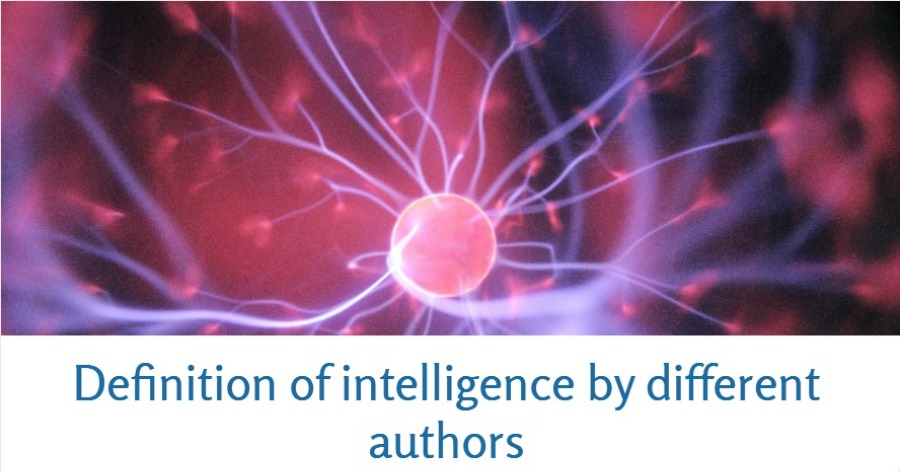The ability to apply any knowledge accurately, fluently, honestly, and with present observation is called intelligence. intelligence can express complex matters in simple words. An intelligent person can understand a phenomenon very quickly or find a solution to a problem easily.
People who are intelligent understand problems easily and want to solve them by applying logic. They easily imagine forms and think more about different objects in the environment, their shape, color, structure, etc.
Let’s take an example: While crossing a road, a wise person first tries to understand the direction of traffic or from which direction the vehicles are coming. Now cross the road if no car comes from that direction.
Definition of intelligence by different authors
According to the American Heritage Dictionary, fourth edition, 2000, “The capacity to acquire and apply knowledge.”
Compact Oxford English Dictionary, 2006 defines, “The ability to acquire and apply knowledge and skills.”
World Book Encyclopedia, 2006 defines, “The ability to adapt to the environment.”
K. Warwick quoted, “…the mental ability to sustain successful life.”
According to Schank, “Intelligence means getting better over time.”
L. M. Terman quoted, “The ability to carry on abstract thinking.”
According to Alfred Binet, “Intelligence means to apply one’s knowledge to a noble situation or adjustment to noble situations.”
AllWords Dictionary, 2006 defines, “The ability to use memory, knowledge, experience, understanding, reasoning, imagination and judgement in order to solve problems and adapt to new situations.”
According to Wechsler, 1944, p. 3, “Intelligence is the aggregate or global capacity of the individual to act purposefully, to think rationally and to deal effectively with his environment.”
Stern defines, “Intelligence is a general capacity of an individual to adjust his thinking to new requirements and it is general mental adaptability to new problems and conditions of life.”
Definition of intelligence by different authors
Woodworth and Marquis define, “Intelligence means intellect put to use. It is the use of intellectual abilities for handling a situation or accomplishing any task”.
D. Lenat and E. Feigenbaum define, “Intelligence as the power to rapidly find an adequate solution in what appears a priori (to observers) to be an immense search space.”
According to Ramos-Ford, V., and Gardner, H. “Intelligence is an ability or set of abilities that permit an individual to solve problems or fashion products that are of consequence in a particular cultural setting.”
According to American Psychological Association, “Individuals differ from one another in their ability to understand complex ideas, to adapt effectively to the environment, to learn from experience, to engage in various forms of reasoning, to overcome obstacles by taking thought.”
Robert Sternberg defines, “Intelligence is the mental abilities necessary for adaptation to, as well as shaping and selection of, any environmental context.”
According to Fontana, D. “[Intelligence is] the ability to see relationships and to use this ability to solve problems.”
Cambridge Advance Learner’s Dictionary, 2006 defines, “The ability to learn, understand and make judgments or have opinions that are based on reason.”
Encarta World English Dictionary, 2006 defines, “The ability to learn facts and skills and apply them, especially when this ability is highly developed.”
Longman Dictionary or Contemporary English, 2006 defines, “The ability to learn, understand, and think about things.”
According to Freeman, “It is a capacity for successful adjustment by means of traits which we ordinarily call intellectual.”
Definition of intelligence by different authors
According to H. Nakashima, “Intelligence is the ability to process information properly in a complex environment. The criteria of properness are not predefined and hence not available beforehand. They are acquired as a result of the information processing.”
Word Central Student Dictionary, 2006 defines, “The ability to learn and understand or to deal with problems.”
Wordsmyth Dictionary, 2006 defines, “The capacity to learn, reason, and understand.”
According to H. Gardner, “Intelligence is the ability to solve problems, or to create products, that are valued within one or more cultural settings.”
According to J. Huarte, “Intelligence is the ability to learn, exercise judgment, and be imaginative.”
B. Goertzel defines, “Achieving complex goals in complex environments.”
P. Wang defines, “Intelligence is the ability for an information processing system to adapt to its environment with insufficient knowledge and resources.”
According to S. Legg and M. Hutter, “Intelligence measures an agent’s ability to achieve goals in a wide range of environments.”
According to Bigge, M. L. “Intelligence is an individual’s ability to respond to a given situation by anticipating the possible consequences of his actions.”
Here are some signs of an intelligent person:
- They read books as a hobby.
- They think before they say anything.
- They have a good idea about the future.
- They listen more than they talk and they are good questioners.
- When they face a problem, they try to solve it without resorting to violence.
- They don’t give up when they fail, they learn from their mistakes.
- They know they are not always right and therefore accept it if someone proves them wrong.
Read More:
Definition of money by different scholars

Leave a Reply